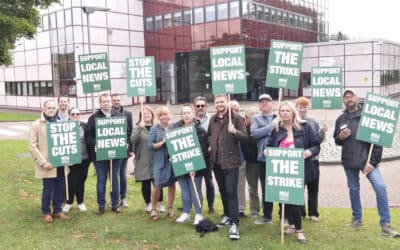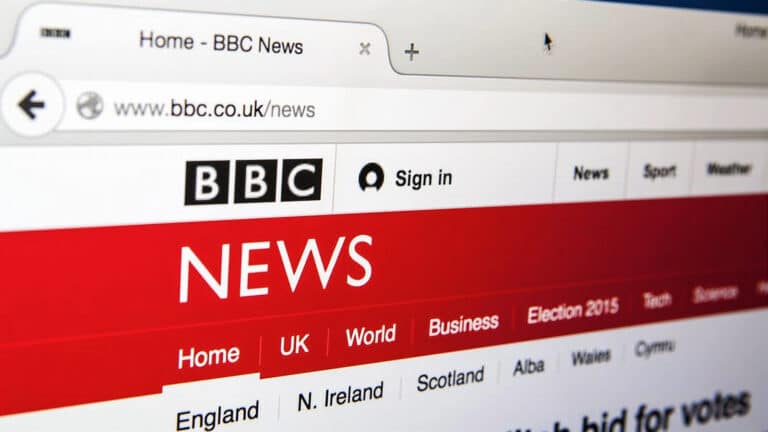The editorial chiefs of some of the UK’s biggest regional publishers have teamed up in a rare moment of solidarity to warn about the threat posed by the BBC’s ongoing digital-first plans for its news operations.
In a co-signed article in the Press Gazette Ian Carter, Iliffe Media editorial director; Toby Granville, Newsquest editorial development director; Paul Rowland, Reach Regionals editorial director; Gary Shipton, National World editorial director; Jeremy Spooner, News Media Association Independent Publishers Forum chair, and Martin Wright, Midland News Association editor in chief said:
“If the BBC was a family and lived in the house next door to you it would be the neighbour from hell.”
The piece goes on to claim that the BBC is a “state-funded juggernaut on course to suffocate independent journalism in every city, town and village in the UK” and that it has “taken an axe to its much-loved local radio stations so it can start writing news stories online which you can already get from local newspapers which are currently battling with tech platforms like Google, Meta and Apple.”
The group are referring to the BBC’s plans, initally laid out in October 2022, to “strengthen local online news provision” in communities across England. The scheme includes the creation of 130 additional posts, which the editors concede would normally be welcome, however they claim that “the BBC’s plans put at risk thousands of existing jobs on titles known to their communities for generations. Unlike Google, Meta and co, the BBC’s funding is guaranteed by the licence fee, meaning the British public is underwriting the biggest threat local journalism has ever faced. It is splashing your cash on local news websites and making it increasingly difficult for proud, independent news sites to survive in the long term.”
The BBC has said its the plans will deliver “a stronger and more distinctive local online news service for 43 different local areas in England – all available on the BBC News website and app”.
The regional editors, however, claim that this will have an adverse effect on the “fragile” independent news sectors in local communities.
They also ad that the BBC’s publicly funded, ad-free model gives it an unfair advantage in search engine algorithms over independent publishers, and that the BBC’s position of being regulated by the “indifferent” Ofcom, rather IPSO gives it a further advantage.
They continued: “It is our reporters who hold local decision-makers to account, campaign on your behalf, research and share essential information, hold up the mirror to local successes, and have no other interest than in telling the truth. We’re also the turn-to source for the BBC when it wants to know what’s going on.
Editors are convinced that as they juggle the realities of the cost-of-living crisis, the BBC – immune from the same commercial pressures – is fixated on stealing their readers, their businesses, and the jobs of their journalists. It either knows what is doing, and doesn’t care, or is ignorant to the impact it will have.
“If the BBC wants to fairly compete and support a diverse and trusted local news reporting ecosystem, as it claims to do, it must act now. It should focus its efforts on providing a snapshot of life in its 12 English regions, Wales, Scotland and Northern Ireland, and abandon its roll out of 34 local websites, which directly compete with publishers who have cared about local news online during the last decade when the Beeb repeatedly showed it didn’t.”
The joint statement concluded: “Earlier this year we called on the BBC to be a better neighbour. It is time the BBC showed that it is not the biggest threat to local community independent journalism, but a global broadcaster focussed on delivering the very best television and radio in line with its charter.”
A BBC spokesman told Prolific North: “We are reshaping our local services to increase the value we deliver to audiences across England and to ensure we keep pace with changing audience expectations and remain a cornerstone of local life for generations to come. There is no evidence that the BBC is crowding out other digital publishers. We work collaboratively across the industry and our partnership with the NMA has transformed coverage of local democracy across the UK.”
The BBC added in its response that it has worked constructively with local media publishers for years and already funds 165 reporter posts across the UK who supply commercial publishers with stories as part of the Local Democracy Reporting Service programme. Since the scheme launched, it has produced more than 370,000 original stories for in excess of 1,100 different news outlets.














